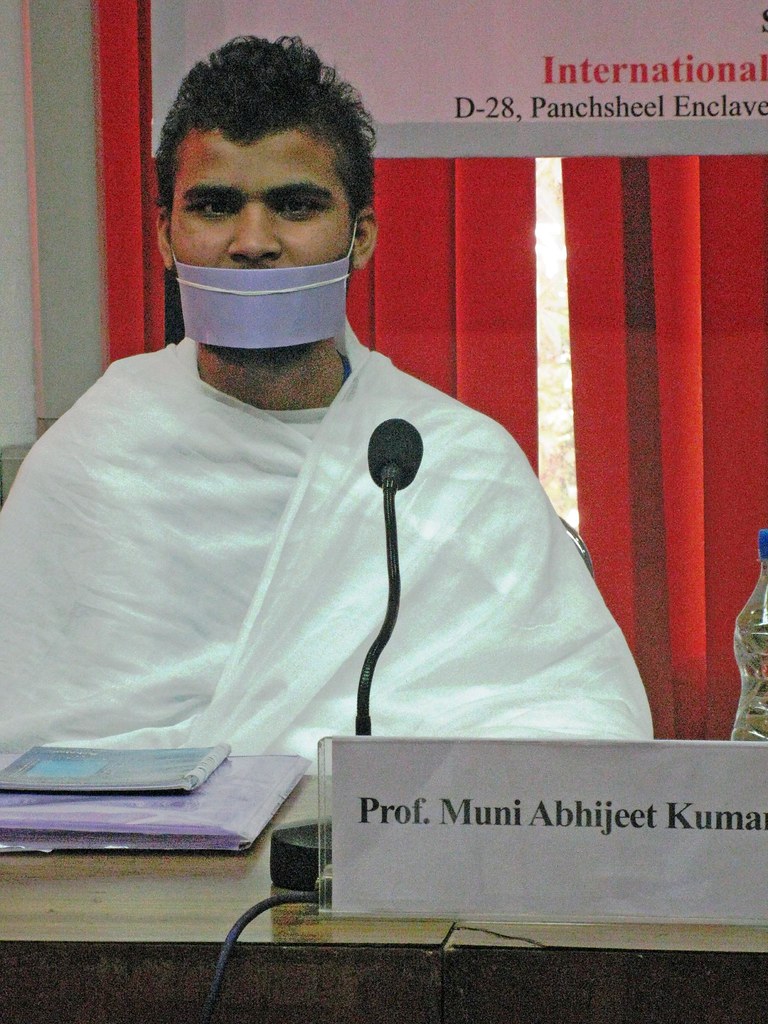ISJS
Series of 3 seminars on
Integrating Modern Science and Spirituality for Social Wellness:
A Challenge of 21st Century
Seminar "A"
Consciousness and Knowledge: Scientific and Spiritual Perspectives
Delhi
Saturday, December 11, 2010
Wisdom quâ Consciousness: A Critical Analysis
Consciousness is the prime driving force of all the activities whether positive or negative, constructive or destructive. Interestingly humans have used this force in developing their culture, civilization, art, science and technology. It is a matter of fact that humans have developed tremendously in past few decades. Modern discoveries, recent inventions, sophisticated technology and sound equipments have improved our standard of living but on the other side, generation gap, mental disorders, psychosomatic diseases, intensified stress, increasing materialistic attitude, wealth-oriented economy, growing psychological distortions have put a question mark to all such fast-paced developments. In order to channelize the power of consciousness in a positive and creative direction, as well as remaining immune from negativities we need to activate wisdom.
What is wisdom? How to activate it? What are its levels? Do we have a strategy for its development? What is Consciousness? What is the interrelationship between wisdom and consciousness? All such questions are investigated in this paper.
Consciousness (Cetanā)
It is the fundamental characteristic of soul. The vital essence of all living beings which distinguishes them from the inanimate world is the consciousness itself. Scientists and philosophers have diverse points of view on consciousness so it is difficult to get a universal definition of it, but broadly speaking it implies the Self, ātman, soul or cetanā. It is the entity which perceives, observes, experiences and governs all the mental and bodily activities of all living beings. Consciousness necessarily differs from the state of being conscious, i.e., aware but rather it is the one which becomes aware. So it is not the state but the existence itself.
Consciousness in philosophy and psychology means something beyond physical order of existence. In many contexts it is said to imply four characteristics: subjectivity, change, continuity and selectivity. Similarly, in Jain scriptures we find its four essential attributes, namely - sentience, world-view, bliss and energy.
Wisdom (Prajñā)
There is a general misconception that knowledge and wisdom are the same. However it is important to understand and emphasize that wisdom is a step ahead of knowledge on the path of development of pure consciousness. Knowledge is a constituent of wisdom which has several other elements. Wisdom is to be understood as faculty/ability as well as unique state of consciousness.
Wisdom as faculty of consciousness
It is the faculty of consciousness through which it can exercise its discretionary power to decide what is beneficial and what is harmful for the self and others along with guiding the self to the genuine course of action. In other words, it is the comprehension of what is true, right or wholesome coupled with optimum judgement as to action. It is an inevitable definitive characteristic of a philosopher and a saint. The etymological meaning of wisdom itself is "love of wisdom". Wisdom is the essence of philosophical probing.
Wisdom as a state
It is a state of inner awakening experiencing the truth and internal bliss which transcends material happiness, intellect and thinking. It is different from the expertise/skills developed through logic and reasoning. It is a uniquely human state which can never be acquired by artificial intelligence like computers and robots. In this state, a person due to his inner awareness and spiritual insights is capable of taking sound, accurate and positive decisions.
Wise person can maintain his calmness, patience and equanimity even in adverse and uneven circumstances due to his radical problem solving capacity.
Pillars of wisdom
As explained wisdom is a multifaceted faculty and the key pillars which formulate the foundation of wisdom are:
1. Mindfulness/Self-awareness, 2. Positive attitude, 3. Emotional intelligence, 4. Truthfulness, 5. Moral excellence, 6. Virtuous disposition, 7. Open-mindedness.
Types of wisdom
- Pragmatic/Empirical,
- Ethical,
- Practical,
- Intuitive,
- Spiritual
Path to wisdom
A certain practical procedure is designed through which everyone can activate his wisdom. First of all one has to meditate, contemplate and analyse the self to discover his intrinsic talent and aptitude which will help him to decide his goal. Strong will power, knowledge of correct methodology, stress & time management, hard work, good company along with emotional control, spiritual development and virtuous disposition will certainly result into activation of his wisdom.
Conclusion
Wisdom plays a magnificent role in self-evolvement, efficiency enhancement and complete development. We all can activate the dormant wisdom by applying positive virtues and spiritual practices in our life. A positive and creative transformation can take place in the world full of miseries, stress and disorders by activation of wisdom.
Photos
Muni Abhijeet Kumar




 Dr. Muni Abhijit Kumar
Dr. Muni Abhijit Kumar